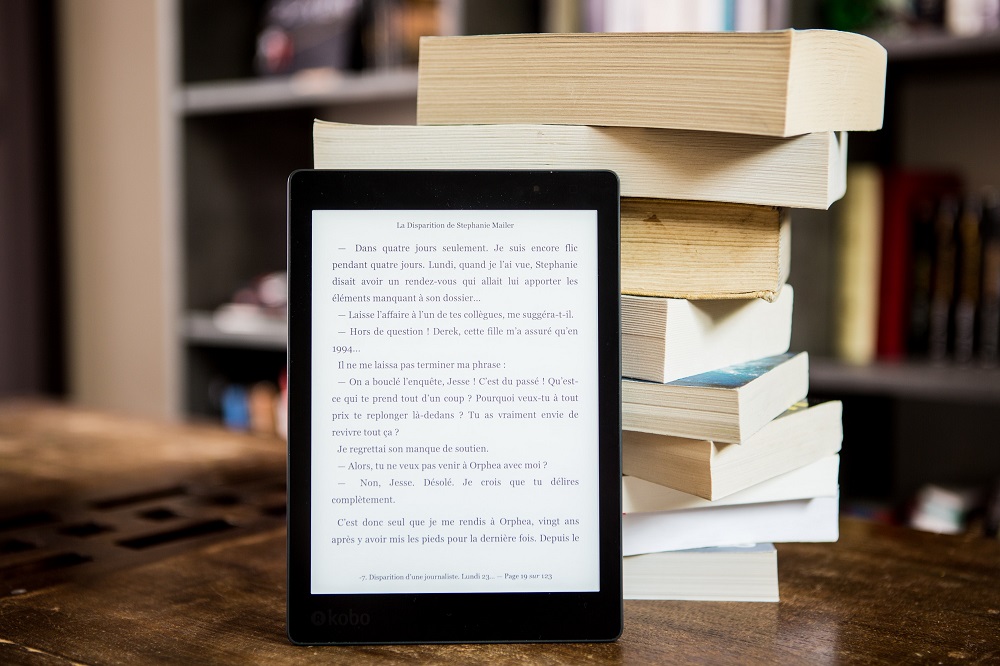In the digital age, it seems like anything that can be put on a computer screen will be put into a computer screen, from food delivery and hotels, to taxis and furniture delivery. Over the years, I’ve tried to embrace as much of this technology as I could (for fear of being called a Luddite!), but there was one thing that I only recently started embracing: e-books.
Now, don’t get me wrong: I still love my hardbound collection (even the paperbacks), but e-books have really opened my eyes to the possibilities of technology. But more importantly, it’s also shown me how this technology can inspire the younger generation to read more.
Reading is a fundamental skill most people should know. Unfortunately, the global literacy rate is 86.3 percent which means that a few hundred million people cannot read regardless of the type of literature they are presented with. And in this age where physical books may still be inaccessible to kids learning to read at a young age and even older adults, e-books may be the solution.
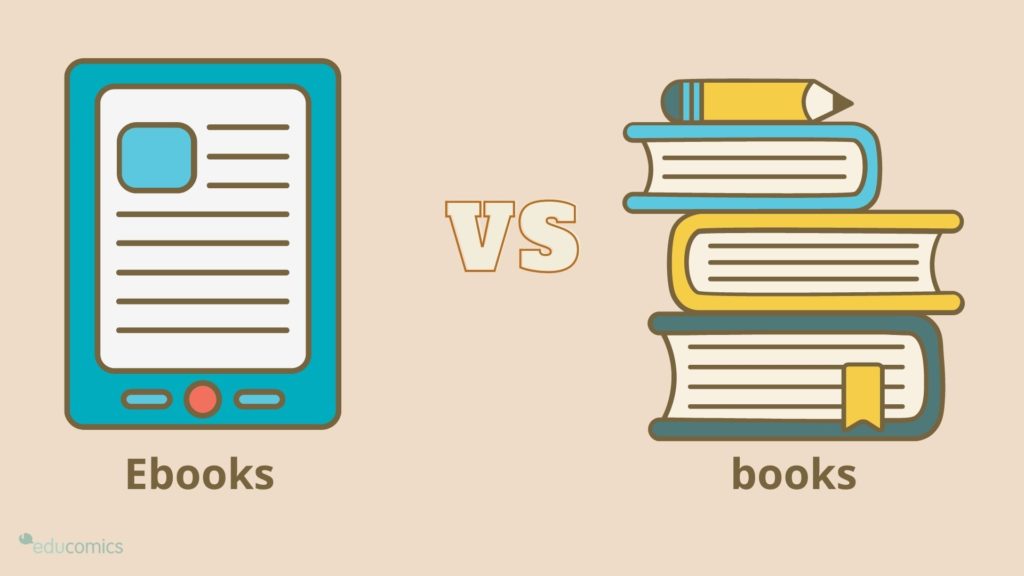
I can hear the purists now though, “e-books aren’t real books! Nothing beats paper!” And believe me, I would have agreed with you a few years ago, but trust me, there’s a lot of benefits to e-books. Which isn’t to say that traditional books aren’t great too, they are; it’s just that e-books are not the hardcover killers that people make them out to be. In fact, if done right, e-books can help students appreciate traditional books more.
While browsing the bookstore to buy a gift for that special someone (or yourself), you may be faced with a tough decision: e-books or the old-fashioned kind? The pros and cons of ebooks vary, and choosing the best option depends on a number of factors.
Convenience
For a bibliophile like myself, there’s nothing more impressive than seeing a room with floor-to-ceiling, wall-to-wall bookshelves filled with all manner of books. But the problem with that setup? I can’t bring all of those books in my backpack!

With e-books, you can fit entire libraries into a single electronic reader. If not a NOOK eReader or any tablet that can read e-books, most smartphones nowadays have apps automatically installed to read e-books. And if it doesn’t, there are many free apps you can download. This makes it convenient when you want to take a break from reading Dickens’ A Tale of Two Cities and want to continue your reading of Hegel’s Dialectics.
Sustainability
I love the smell of books: the ink, the paper, oh that wonderful smell of paper! Unfortunately, because of society’s mass consumerism and unchecked industry, our forests are being destroyed at a rate that is not only alarming, it’s catastrophic. Aside from the fact that mass book production means tapping into virgin forests to make paper, the process of making books consumes 153 billion gallons of water every year. And that’s not even including the chemicals and organic and inorganic matter released into the oceans and the air because of book production.
While there are few things in life that make me as happy as that new book smell, I need to be practical. E-books are digital, which means there’s no environmental impact in their creation. Yes, the digital readers require resources like rare earth materials and alloys and such, but they are, in the long, more sustainable than buying paper books day in and day out. While the written word on paper is magical, we also need to be practical. Besides, a real reader will find that magic anywhere, whether it’s on a standard 6”x9” sheet or on an electronic screen.
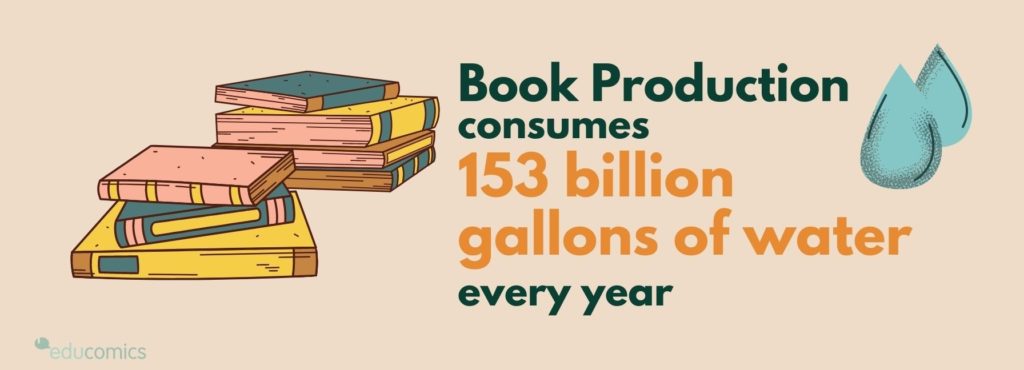
The Kids Are Already On It
In 2014, the Library & Information Science Research, a journal dedicated to all things books, conducted a study that focused on more than a hundred 10th graders and their reading habits. They found that an overwhelming majority of these kids preferred e-books over traditional books.
This is an example of technology helping kids to read: newer generations of students are more comfortable with electronic devices, so reading an e-book is more than just preferable, it’s actually interesting for them.
It also helps that most e-book readers also have options to adjust the font size, offer on-screen explanation of difficult words, increasing the brightness, etc. all of which make them more accessible to kids.
So the next time you feel the urge to scold a child for spending too much time on their computer or tablet, bear in mind that they’re probably just reading a book!
E-books help the visually impaired
Children with dyslexia are often turned off by the idea of reading. Unfortunately, because of their condition, dyslexic children are lacking in terms of reading skills and thus have a harder time progressing with their education. However, scientists are discovering that e-book readers might just be a solution to that problem.
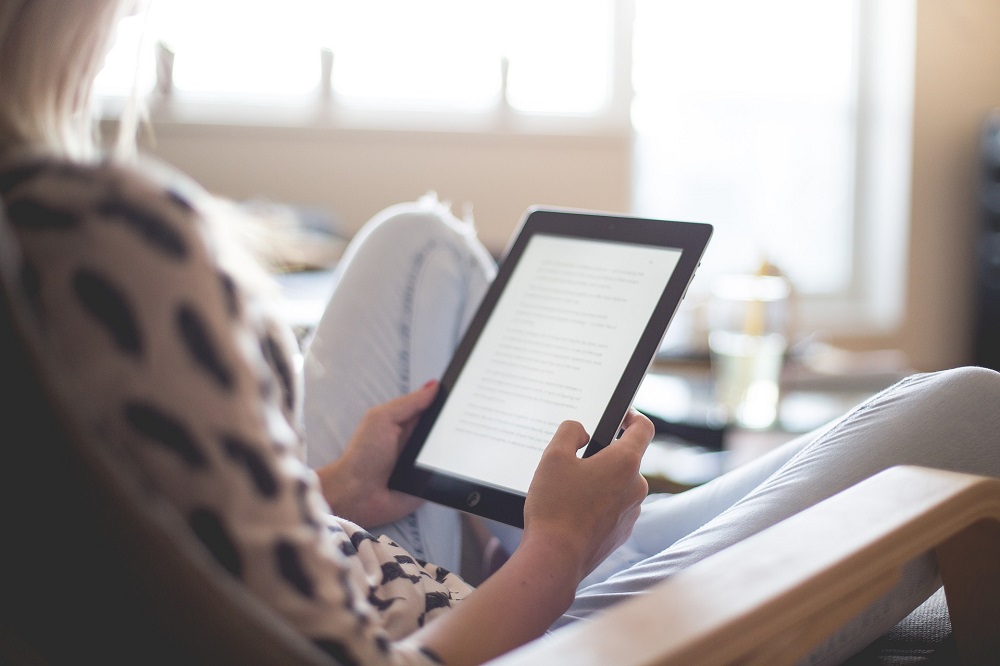
A component of dyslexia is its inefficiency of processing visual information. Because traditional books are static, dyslexics have to struggle with understanding every sentence. However, e-book readers give them an option to increase the text size. This might not seem like much, but for dyslexics, it’s a godsend: studies show that it helps them read more efficiently, and has in fact made it easier for some. This is because larger text sizes mean shorter lines of text, which helps them process information more effectively, and ultimately, making book reading an accessible and enjoyable activity.
E-books Can Provide a More Immersive Experience
I’m not talking about the immersive experience you get when you get so enthralled by a book that you forget you’re sitting in a coffee shop and are suddenly a person inside your book’s universe. I’m talking about the immersive experience of actually hearing and seeing the book come to life.
E-books and audiobooks are on the same wave and can be used for a better reading experience. I’m the type of person who wants to see things or else I get distracted, so I’ve never really been a fan of listening to audiobooks on their own. But I’ve also heard a few audiobooks and how some books hire voice actors to really make the story believable.
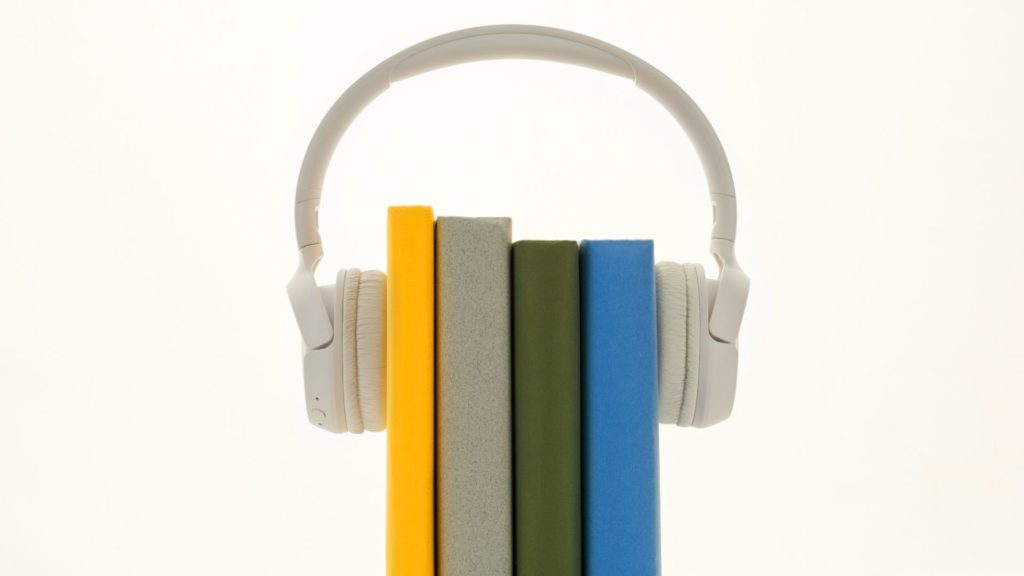
Some e-books come with audio files to help improve your reading experience. Unfortunately, not all e-book formats provide this. But if you want this experience, your best bet is to get a Kindle, Nook, or Google Nexus 9. It can make all the difference if you want to hear what the dialogue sounds like (and maybe a guide on how to pronounce those alien names like a true book fan).
But before you start thinking I’m some kind of e-book zealot, let me remind you why I still love traditional books…
People Retain More Information from Paper
Scientists from around the world are finding evidence that reading on paper might actually be much better for retaining data as well as remaining focused. Researchers from Norway’s Stavanger University conducted small-scale studies that tested people’s ability to remember key plot points of stories when read from either a traditional book or an e-book. They found that readers who were using a Kindle scored higher in memory tests as opposed to those reading from paper.
They believe that the tactile sense of paper is what gives it an edge in terms of retaining information: because the book’s weight shifts from right to left as you progress, the brain is more engaged and focused on processing all this data at once, helping it retain as much information as possible. Feeling the weight of the book shift dynamically while you’re reading the story makes it easier for your brain to visualize plot points and other story details.
I told you books were magic!
Traditional Books Help with Eye Strain
One of the biggest drawbacks of e-books is its screen luminance. Even e-book readers that have low-light screens are still emitting artificial light, which interferes with a person’s ability to sleep and putting strain on their eyes. Reading from an e-book reader at night can also impair your body’s production of melatonin.

Traditional books don’t have that problem. When reading from a traditional book under good lighting, your eyes relax over time and do not interfere with your body’s sleep cycle. Any reader who’s ever fallen asleep reading a book will attest to this!
In my opinion, one type of book isn’t better than the other: they both have their pros and cons, and at the end of the day, it’s all about preference. If you prefer the smell of books and the thrill of manually turning every page as you make progress with a book, there’s no reason to go digital if you don’t want to. And if you prefer the convenience, ease, and unlimited options you have while using your Kindle, then you can save up on a ton of shelf space and never have to buy another book again. You’ll actually be doing the environment a favor, too!
As for me, well, I like my Kindle; I take it everywhere I go, but that doesn’t mean I’m getting rid of my physical library any time soon!

